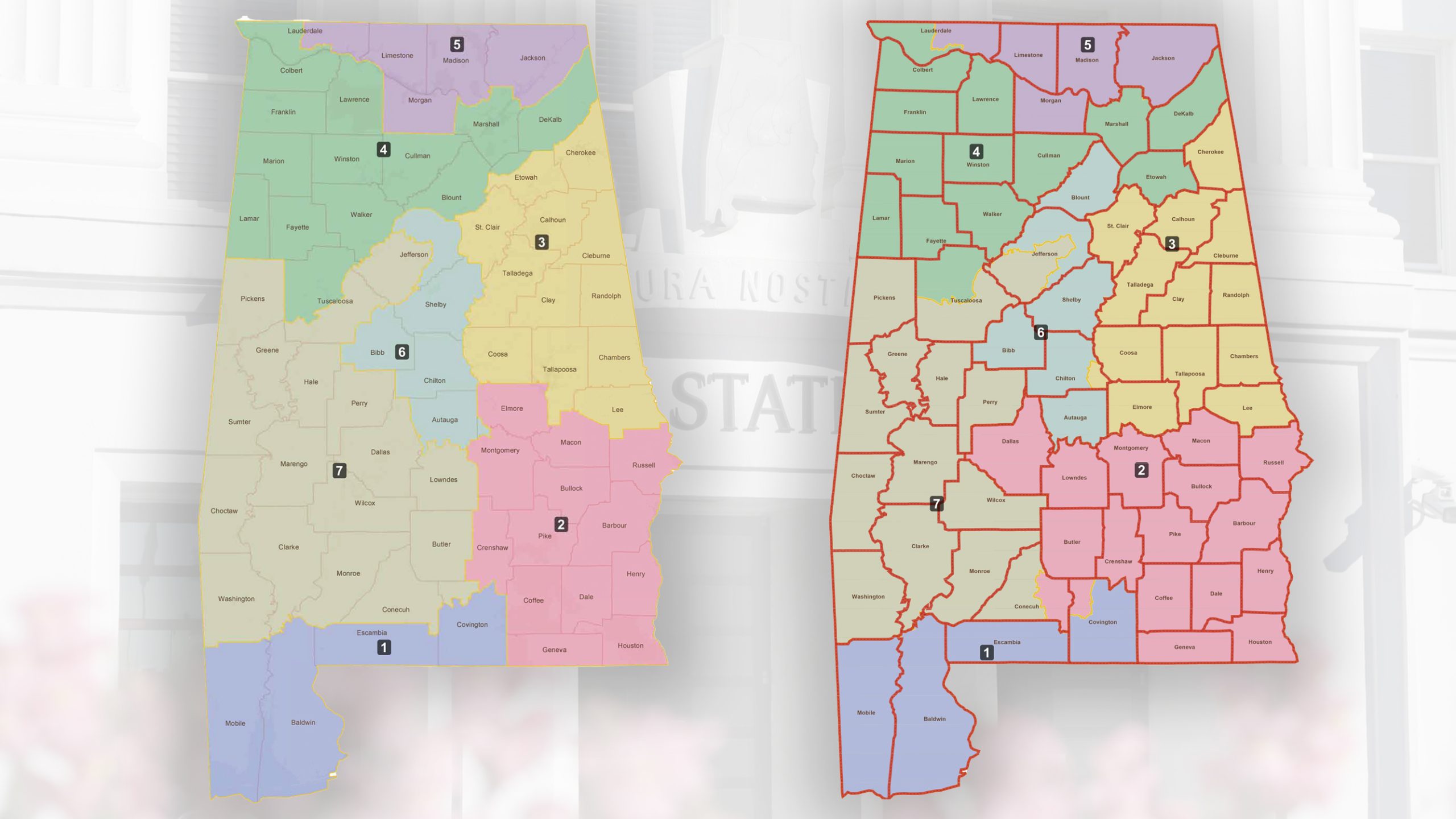On Monday, a three-judge panel from the U.S. Northern District of Alabama refused a request to stay an order for a special master to redraw Alabama’s congressional map.
On Sept. 5, the same three-judge panel ruled that Alabama’s July congressional map did not satisfy their previous order to make a map with an additional majority Black district, or something close to it. The panel then ordered a third party special master to draw a new remedial map by Sept. 25 for review by U.S. Circuit Judge Stanley Marcus, U.S. District Judge Anna Manasco and U.S. District Judge Terry Moorer.
In their 26 page decision, the panel stated how “unusual” it was for Alabama and the Secretary of State Wes Allen to directly disobey a federal court order and believe they will appeal again to the U.S. Supreme Court after failing previously.
The panel wrote: “We are aware, however, of no other case — and the Secretary does not direct us to one — in which a state legislature, faced with a federal court order declaring that its electoral plan unlawfully dilutes minority votes and requiring a plan that provides an additional opportunity district, responded with a plan that the state concedes does not provide that district. Likewise, it is exceptionally unusual for a litigant who has presented his arguments to the Supreme Court once already — and lost — to assert that he is now ‘overwhelmingly likely’ to prevail on those same arguments in that Court in this case.”
In June the Supreme Court ruled in Allen v. Milligan that Alabama’s 2021 congressional map diluted Black voting power and likely violated the Voting Rights Act, siding with the district court’s initial ruling. Despite this ruling, Alabama Republicans still proceeded to draw a congressional map that included only one majority Black district. The second highest district in terms of Black voting age population was approximately 40 percent.
Alabama has a Black population of about 27 percent, but the 2021 congressional map only had one majority-Black district.
“In the face of intense racial polarization, the 2023 Plan provides no greater opportunity for Black Alabamians to elect a candidate of their choice than the 2021 Plan provided,” the court wrote.
The hubris displayed by the Alabama GOP is because they believe that if they appeal to the Supreme Court, Justice Brett Kavanaugh may reverse his decision once litigation concerning redistricting is brought back before the court. If this does happen, and Kavanaugh flips his vote, it will gut Section 2 of the Voting Rights Act, ending any protections against voting discriminations based on race or other factors.
Attorney General Steve Marshall’s office also indicated that it will appeal the stay request to the Supreme Court. That filing could come Monday evening.
The three-judge panel also stated how harmful it would be to Black voters if a stay were implemented because they would be forced to vote under an unlawful map that dilutes Black voting power for the second time. Black voters voted under the 2021 congressional districting lines after the Supreme Court delayed their ruling after the 2022 election cycle.
“We further find that the issuance of a stay would substantially injure the other parties in these proceedings,” the panel wrote. “In the injunction the Secretary asks us to stay, we found that the Plaintiffs will suffer irreparable harm if they must vote in the 2024 election based on a likely unlawful redistricting plan.
“The Plaintiffs already suffered irreparable injury once in this ten-year census cycle, when they voted under the unlawful 2021 Plan in 2022. The Secretary has made no argument that if the Plaintiffs were again required to cast votes in 2024 under an unlawful districting plan, that injury would not be irreparable. Accordingly, we find that the Plaintiffs will suffer irreparable harm absent injunctive relief. Absent relief now, the Plaintiffs will suffer this irreparable injury until at least 2026, which is more than halfway through this census cycle. The Secretary offers no reason, let alone a compelling one, why Alabamians should have to wait that long to vote under a lawful congressional districting map.”
On Monday, the plaintiffs in Caster v. Allen submitted a map for the special master to consider. According to a press release from the National Redistricting Foundation (NRF), the map creates two majority Black districts and keeps every Black Belt county united under the two districts. The map would make District 2 consist of a BVAP of 50.08 percent and give District 7 a BVAP of 54.43 percent.
“This map provides Black Alabamians the representation they rightly deserve in accordance with Section 2 of the Voting Rights Act,” said Olivia Mendoza, Director of Litigation and Policy for the NRF. “A fair, compliant map must include two congressional districts in which Black voters have a true and meaningful opportunity to elect a candidate of choice, and the VRA Plaintiffs’ map does just that. The Special Master can and should adopt this map.”





















































